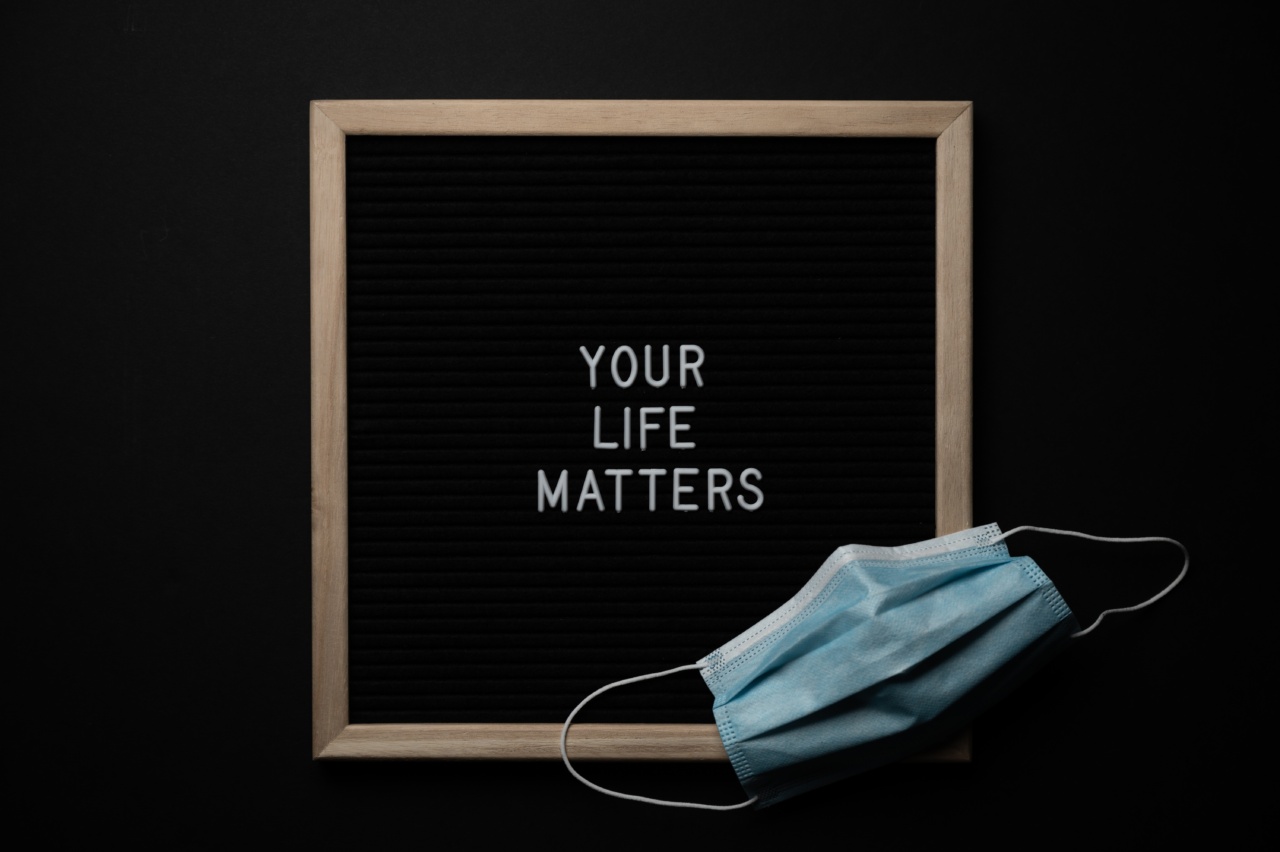Depression is a serious mental health condition that affects millions of people worldwide. It can drain your energy, steal your happiness, and make even the simplest tasks feel impossible.
However, there are ways to combat depression and take back control of your life. By understanding the causes and symptoms of depression, seeking proper treatment, and adopting healthy coping mechanisms, you can prevent depression from stealing your life.
Recognizing the Symptoms of Depression
Depression can manifest in various ways, and everyone may experience it differently. However, there are common symptoms to look out for:.
1. Persistent Sadness or Low Mood
Feeling sad or down for an extended period is a classic symptom of depression. If you find yourself constantly in a low mood or feeling hopeless, it may be a sign to seek help.
2. Loss of Interest or Pleasure
Depression often robs individuals of their enjoyment in activities they once loved. If hobbies or activities that used to bring you joy no longer spark interest, it could be a symptom of depression.
3. Changes in Sleep Patterns
Depression can affect your sleep in different ways. Some people may experience insomnia and struggle to fall or stay asleep, while others may oversleep and struggle to get out of bed.
4. Fatigue and Lack of Energy
Feeling constantly tired and lacking energy, even after a full night’s sleep, is a common symptom of depression. It can make even the simplest tasks feel overwhelming.
5. Changes in Appetite
Depression can affect your appetite, leading to significant weight changes. Some individuals may experience a loss of appetite, while others may turn to food for comfort and experience weight gain.
6. Difficulty Concentrating
Depression often affects cognitive function, making it challenging to concentrate or make decisions. You may find yourself easily distracted or struggling to remember things.
7. Physical Symptoms
Depression is not just a mental health condition; it can also manifest in physical symptoms. These can include headaches, body aches, stomach problems, and other unexplained pains.
8. Feelings of Guilt or Worthlessness
Individuals with depression often experience overwhelming feelings of guilt or worthlessness, even when there is no logical reason for these emotions.
9. Social Withdrawal
Depression can make social interactions draining and overwhelming. You may find yourself withdrawing from friends and family, preferring to be alone instead.
10. Suicidal Thoughts
One of the most severe symptoms of depression is having thoughts of self-harm or suicide. If you or someone you know is experiencing this, it is crucial to seek immediate help.
Seeking Proper Treatment
If you recognize any of the above symptoms in yourself or a loved one, it is essential to seek proper treatment. Depression should not be ignored or treated lightly. Here are some treatment options to consider:.
1. Therapy
Therapy, such as cognitive-behavioral therapy (CBT), can be highly effective in treating depression. It helps individuals identify negative thought patterns, develop healthy coping mechanisms, and learn practical strategies to manage their symptoms.
2. Medication
In some cases, medication may be prescribed to help manage the symptoms of depression. Antidepressants can be beneficial for regulating brain chemistry and improving overall mood.
3. Lifestyle Changes
Adopting a healthy lifestyle can significantly impact your mental well-being. Regular exercise, a balanced diet, and sufficient sleep play crucial roles in managing depression.
4. Support Network
Building a strong support network is vital in preventing depression from taking over your life. Surround yourself with people who understand and support you, and don’t hesitate to reach out for help when needed.
Adopting Healthy Coping Mechanisms
While seeking professional help is crucial, there are also steps you can take to cope with depression on a day-to-day basis.:.
1. Practice Self-Care
Make self-care a priority. Engage in activities that bring you joy, such as reading, taking long baths, or practicing mindfulness and meditation.
2. Set Realistic Goals
Break down tasks into more manageable steps and set realistic goals for yourself. Celebrate small achievements to boost your self-esteem and sense of accomplishment.
3. Challenge Negative Thoughts
Depression often leads to negative thinking patterns. Challenge negative thoughts by examining the evidence, considering alternative perspectives, and practicing positive affirmations.
4. Engage in Relaxation Techniques
Explore relaxation techniques such as deep breathing exercises, progressive muscle relaxation, or guided imagery. Find what works best for you and incorporate it into your daily routine.
5. Avoid Isolation
While it may be tempting to isolate yourself, it is essential to maintain social connections. Reach out to loved ones, join support groups, or engage in activities where you can meet like-minded individuals.
6. Limit Stress
Identify and minimize sources of stress in your life. Practice stress-management techniques such as time management, setting boundaries, and learning to say no when necessary.
7. Practice Mindfulness
Mindfulness involves staying present in the moment, without judgment. Engage in mindfulness exercises such as meditation, yoga, or simply focusing on your senses to help reduce anxiety and depression.
8. Get Sufficient Sleep
Prioritize quality sleep by establishing a consistent sleep routine and creating a calming bedroom environment. Avoid electronics before bed and practice relaxation techniques to improve sleep quality.
9. Engage in Physical Activity
Regular exercise has been proven to enhance mood and reduce the symptoms of depression. Find a physical activity you enjoy, whether it’s walking, dancing, or yoga, and incorporate it into your routine.
10. Express Yourself
Find healthy ways to express your emotions, such as journaling, painting, or engaging in creative outlets. Expressing yourself can be therapeutic and help release pent-up emotions.
Prevent Depression from Stealing Your Life
Depression is a challenging condition, but it doesn’t have to define your life. By recognizing the symptoms, seeking proper treatment, and adopting healthy coping mechanisms, you can overcome depression and regain control of your life.
Remember, reaching out for help is a sign of strength, and you deserve to live a fulfilling and happy life.






























